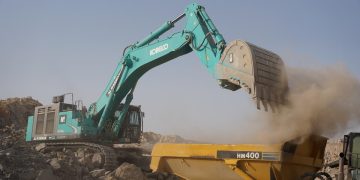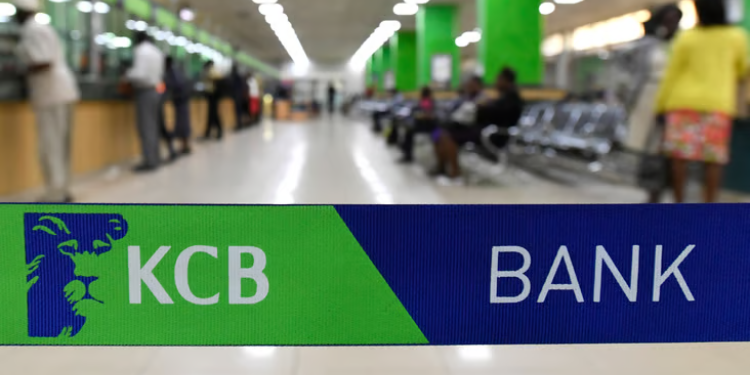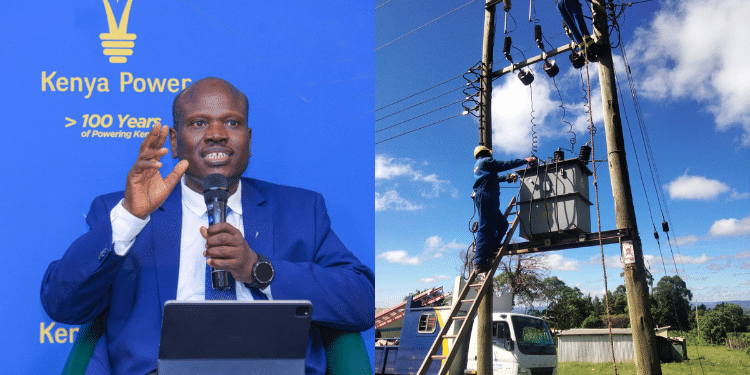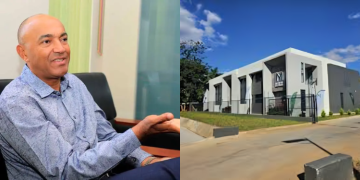Roam, a Kenyan electric mobility company, has launched the Generation 2 Roam Air, an electric motorcycle tailored for Kenya’s 3 million boda boda riders.
The upgraded variant features enhanced safety, improved ergonomics, a more sophisticated design, and improved waterproofing.
Kenya’s boda boda industry is a critical economic driver, with over 3 million riders (mostly young men) providing affordable transport in urban and rural areas.
In total, the new model features over 40 practical improvements and has been extensively tested in both urban and rural settings.
Designed and engineered by Roam’s in-house team, the Generation 2 displays a strong commitment to local innovation and manufacturing.
Also Read: Harriet Okatch: Profile of New Kenya Rugby Union Chairperson
Upgraded Features
The upgraded design has enhanced waterproofing, rust-resistant parts, simplified cabling, advanced lighting, redesigned footrests, a reshaped seat, and a stronger rear carrier.
The electric company has made the new design one kilogram lighter than the original version, with a reinforced frame supporting 240 kilograms, 20 kilograms more than the original model.
The design has a lockable single-door battery compartment to deter theft, and a 120 km range on dual batteries that are chargeable in less than 3.75 hours.
The 120 km range and 240 kg capacity make the Roam Air competitive for boda boda use, where long daily trips and heavy loads are common.
The company has also considered to increase the domestic production of key parts to 36%, including the body panels, wire harness, connectors, battery compartment, mechanical auxiliaries, and storage unit.
Roam competes with other electric mobility startups in Africa, like Ampersand and Spiro, but its focus on local manufacturing at 36% and rider co-design sets it apart.
This figure exceeds Kenya’s Legal Notice 112 for Duty Remission Scheme eligibility, reducing costs and creating jobs.
Kenya’s government aims to transition 2-3 million boda bodas to electric by 2030, supported by an 85% renewable energy grid, primarily geothermal and hydro.
Financing partnerships make the new design accessible to riders with limited upfront capital, with deposits from Ksh25,000 and daily installments starting at Ksh460 over 24 months.
By reducing fuel costs by up to 60%, the Roam Air could increase riders’ disposable income, potentially boosting local economies. The 36% local production supports job creation in Kenya’s clean-tech sector.
With Kenya’s renewable-heavy grid, widespread adoption could cut carbon emissions from the boda boda sector, which currently relies on petrol-powered bikes.
Also Read: Kenya to Use Chinese Technology to Fight Terrorists and Bandits
ROAM Remarks
Joel Amboka, a Nairobi-based boda boda rider, said, “Before Roam, most of my money went to petrol and repairs. Now I charge at home, spending under KES 200, and ride all day. It has made a real difference in my income. I can also easily run my daily activities thanks to the strong frame.”
Roam’s Production Manager, Monicah Mwalo, emphasized the importance of community involvement in the redesign process.
“We didn’t just update a few features; we rethought the motorcycle with input from the people who use it every day. This version is grounded in Kenyan realities.”
Roam’s local focus and innovations, like a 6,000 km solar-powered journey, earned it recognition as a 2024 Norrsken Impact/100 startup and Kenya’s fastest-growing company by the Financial Times in 2025.
Follow our WhatsApp Channel and X Account for real-time news updates.


















































![Senator Allan Chesang And Chanelle Kittony Wed In A Colourful Ceremony [Photos] Trans Nzoia Senator Allan Chesang With Channelle Kittony/Oscar Sudi]( https://thekenyatimescdn-ese7d3e7ghdnbfa9.z01.azurefd.net/prodimages/uploads/2025/11/Trans-Nzoia-Senator-Allan-Chesang-with-Channelle-KittonyOscar-Sudi-360x180.png)

























